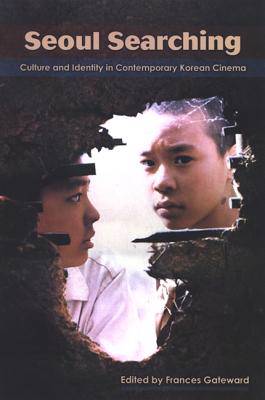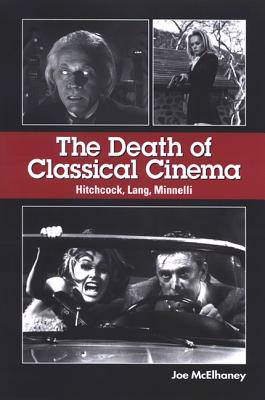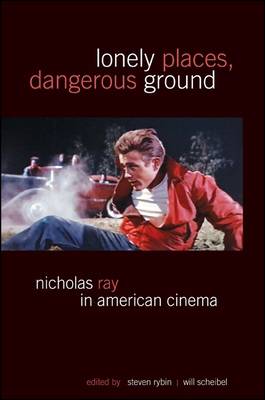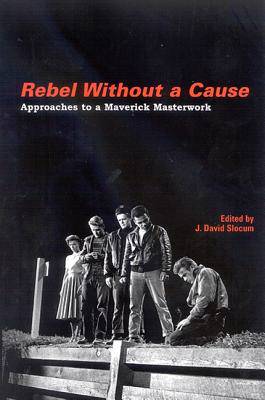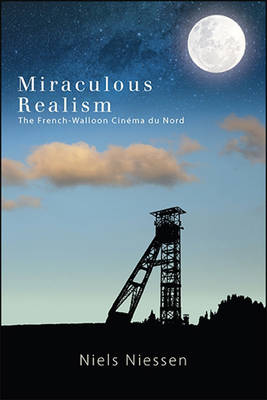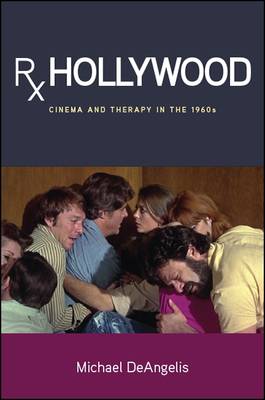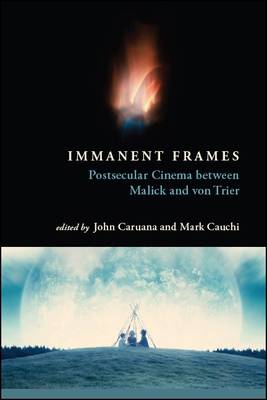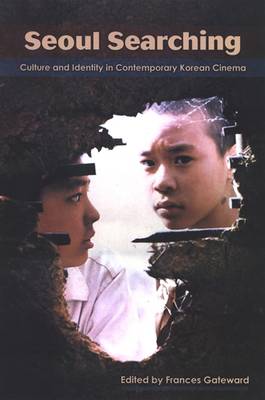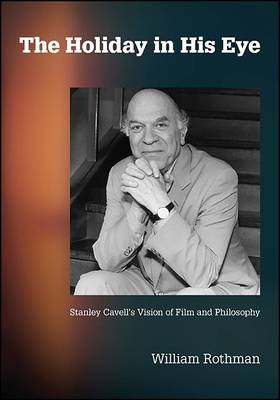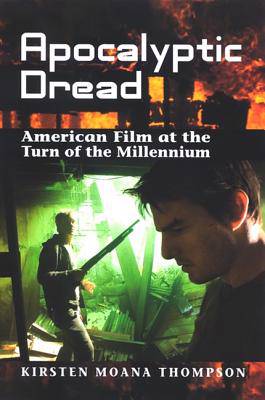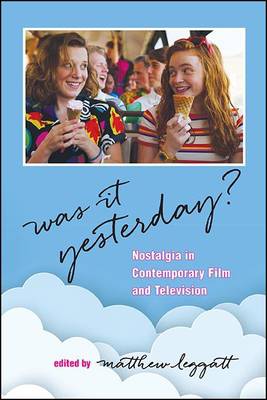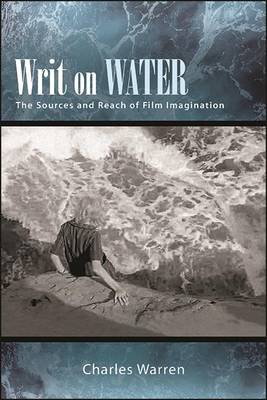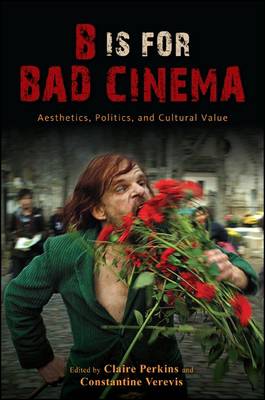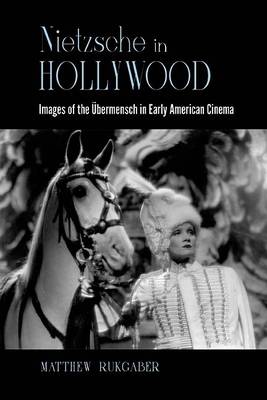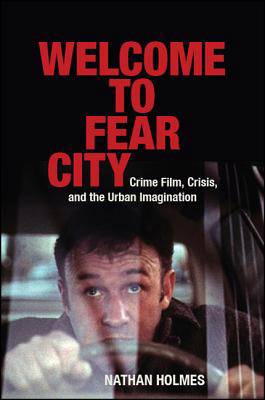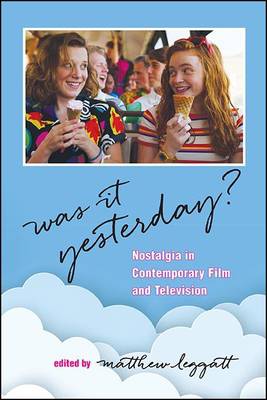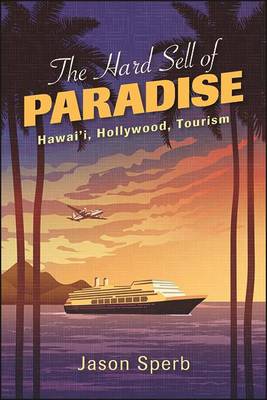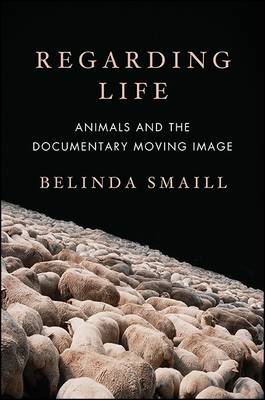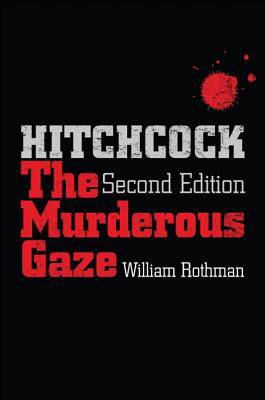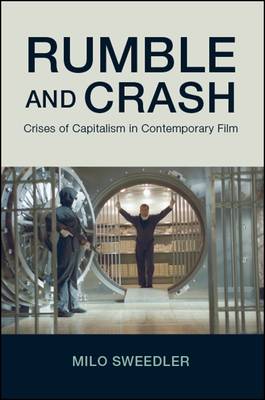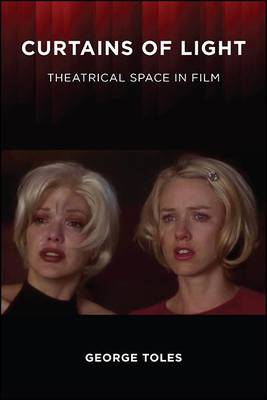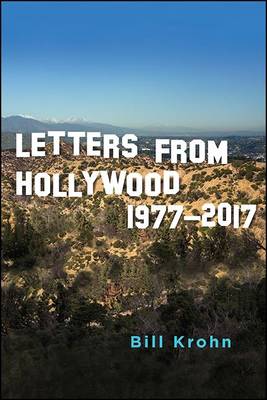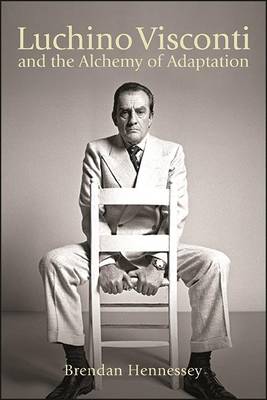
- Retrait gratuit dans votre magasin Club
- 7.000.000 titres dans notre catalogue
- Payer en toute sécurité
- Toujours un magasin près de chez vous
- Retrait gratuit dans votre magasin Club
- 7.000.0000 titres dans notre catalogue
- Payer en toute sécurité
- Toujours un magasin près de chez vous
Résultats pour "Suny Series, Horizons of Cinema"
-
Seoul Searching
- Livre relié | Anglais | Suny Series, Horizons of Cinema
- Korean cinema as industry, art form, and cultural product. Seoul Searching is a collection of fourteen provocative essays about contemporary South Kor... Savoir plus
151,45 €Livraison 1 à 4 semaines151,45 €Livraison 1 à 4 semaines -
The Death of Classical Cinema
Joe McElhaney
- Livre relié | Anglais | Suny Series, Horizons of Cinema
- A study of three classical filmmakers and the films they made at the cusp of the modernist movement in cinema. The Death of Classical Cinema uncovers ... Savoir plus
160,45 €Livraison 1 à 4 semaines160,45 €Livraison 1 à 4 semaines -
Lonely Places, Dangerous Ground
- Livre broché | Anglais | Suny Series, Horizons of Cinema
- A range of approaches to the director's life and work. The director of such classic Hollywood films as In a Lonely Place , Johnny Guitar , and Rebel W... Savoir plus
56,45 €Livraison 1 à 4 semaines56,45 €Livraison 1 à 4 semaines -
Rebel Without a Cause
- Livre relié | Anglais | Suny Series, Horizons of Cinema
- Assesses the layered meanings and persistent global legacy of an American film classic. Five decades after the production and initial release of Rebel... Savoir plus
151,45 €Livraison 1 à 4 semaines151,45 €Livraison 1 à 4 semaines -
Miraculous Realism
Niels Niessen
- Livre broché | Anglais | Suny Series, Horizons of Cinema
- An authoritative study of this postsecular film movement from the French-Belgian border region that rose to prominence at the turn of the twenty-first... Savoir plus
59,95 €Livraison 2 à 3 semaines59,95 €Livraison 2 à 3 semaines -
RX Hollywood
Michael Deangelis
- Livre relié | Anglais | Suny Series, Horizons of Cinema
- How films of the 1960s and early 1970s framed therapeutic issues as problems of human communication, and individual psychological problems as social o... Savoir plus
151,45 €Livraison 1 à 4 semaines151,45 €Livraison 1 à 4 semaines -
Immanent Frames
- Livre relié | Anglais | Suny Series, Horizons of Cinema
- Explores a growing number of films and filmmakers that challenge the strict boundaries between belief and unbelief. For some time now, thinkers across... Savoir plus
151,45 €Livraison 1 à 4 semaines151,45 €Livraison 1 à 4 semaines -
Seoul Searching
- Livre broché | Anglais | Suny Series, Horizons of Cinema
- Korean cinema as industry, art form, and cultural product. Seoul Searching is a collection of fourteen provocative essays about contemporary South Kor... Savoir plus
56,45 €Livraison 1 à 4 semaines56,45 €Livraison 1 à 4 semaines -
The Holiday in His Eye
William Rothman
- Livre broché | Anglais | Suny Series, Horizons of Cinema
- Presents an original, insightful, and compelling vision of the trajectory of Cavell's oeuvre, one that takes his kinship with Emerson as inextricably ... Savoir plus
59,95 €Livraison 2 à 3 semaines59,95 €Livraison 2 à 3 semaines -
Apocalyptic Dread
Kirsten Moana Thompson
- Livre relié | Anglais | Suny Series, Horizons of Cinema
- The power and presence of dread in recent American cinema. In Apocalyptic Dread, Kirsten Moana Thompson examines how fears and anxieties about the fut... Savoir plus
151,45 €Livraison 1 à 4 semaines151,45 €Livraison 1 à 4 semaines -
Was It Yesterday?
- Livre relié | Anglais | Suny Series, Horizons of Cinema
- Explores how nostalgia operates in contemporary US film and television. Bringing together prominent transatlantic film and media scholars, Was It Yest... Savoir plus
159,95 €Livraison 2 à 3 semaines159,95 €Livraison 2 à 3 semaines -
Writ on Water
Charles Warren
- Livre relié | Anglais | Suny Series, Horizons of Cinema
- A powerful and original statement on the nature of film and the intimate relation of "film imagination" to our lives as human beings in the world. Thi... Savoir plus
159,95 €Livraison 2 à 3 semaines159,95 €Livraison 2 à 3 semaines -
B Is for Bad Cinema
- Livre broché | Anglais | Suny Series, Horizons of Cinema
- Considers films that lurk on the boundaries of acceptability in taste, style, and politics. B Is for Bad Cinema continues and extends, but does not li... Savoir plus
53,45 €Livraison 1 à 4 semaines53,45 €Livraison 1 à 4 semaines -
Nietzsche in Hollywood
Matthew Rukgaber
- Livre broché | Anglais | Suny Series, Horizons of Cinema
- Argues that Nietzsche's idea of the Übermensch was a central concern of filmmakers in the 1920s and 1930s. Nietzsche in Hollywood offers a compelling ... Savoir plus
56,45 €Livraison 2 à 3 semaines56,45 €Livraison 2 à 3 semaines -
Welcome to Fear City
Nathan Holmes
- Livre broché | Anglais | Suny Series, Horizons of Cinema
- Analyzes how location-shot crime films of the 1970s reflected and influenced understandings of urban crisis. 2019 CHOICE Outstanding Academic Title Th... Savoir plus
56,45 €Livraison 2 à 3 semaines56,45 €Livraison 2 à 3 semaines -
Was It Yesterday?
- Livre broché | Anglais | Suny Series, Horizons of Cinema
- Explores how nostalgia operates in contemporary US film and television. Bringing together prominent transatlantic film and media scholars, Was It Yest... Savoir plus
56,45 €Livraison 2 à 3 semaines56,45 €Livraison 2 à 3 semaines -
Encountering the Impossible
Alexander Sergeant
- Livre broché | Anglais | Suny Series, Horizons of Cinema
- The first academic explanation for how spectators use their imaginations as part of the experience and appreciation of popular fantasy filmmaking. 202... Savoir plus
56,45 €Livraison 2 à 3 semaines56,45 €Livraison 2 à 3 semaines -
The Hard Sell of Paradise
Jason Sperb
- Livre relié | Anglais | Suny Series, Horizons of Cinema
- Traces the complex and contradictory representations of Hawai'i in popular film and television programs from the 1930s to the 1970s. The Hard Sell of ... Savoir plus
159,95 €Livraison 2 à 3 semaines159,95 €Livraison 2 à 3 semaines -
Regarding Life
Belinda Smaill
- Livre broché | Anglais | Suny Series, Horizons of Cinema
- Contends that the narrative and aesthetic qualities of the documentary genre enable new understandings of animals and animal/human relationships. As i... Savoir plus
53,45 €Livraison 1 à 4 semaines53,45 €Livraison 1 à 4 semaines -
Hitchcock, Second Edition
William Rothman
- Livre relié | Anglais | Suny Series, Horizons of Cinema
- An expanded edition of a classic work of film criticism, with a provocative and eloquent new chapter on Marnie, Hitchcock's most heartfelt--and most c... Savoir plus
151,45 €Livraison 1 à 4 semaines151,45 €Livraison 1 à 4 semaines -
Rumble and Crash
Milo Sweedler
- Livre broché | Anglais | Suny Series, Horizons of Cinema
- Analyzes six films as allegories of capitalism's precarious state in the early twenty-first century. At the beginning of the twenty-first century, as ... Savoir plus
56,45 €Livraison 2 à 3 semaines56,45 €Livraison 2 à 3 semaines -
Curtains of Light
George Toles
- Livre broché | Anglais | Suny Series, Horizons of Cinema
- Provides a new way of thinking about film's relation to theatre. George Toles's Curtains of Light explores the ways in which various kinds of theatric... Savoir plus
59,95 €Livraison 2 à 3 semaines59,95 €Livraison 2 à 3 semaines -
Letters from Hollywood
Bill Krohn
- Livre broché | Anglais | Suny Series, Horizons of Cinema
- Engaging essays on a wide spectrum of Hollywood directors and the films they created. Journalist and filmmaker Bill Krohn has been the Los Angeles cor... Savoir plus
59,95 €Livraison 2 à 3 semaines59,95 €Livraison 2 à 3 semaines -
Luchino Visconti and the Alchemy of Adaptation
Brendan Hennessey
- Livre relié | Anglais | Suny Series, Horizons of Cinema
- Examines the place of book-to-film adaptations by one of Italy's most famous postwar film directors. Since the beginning, much of Italian cinema has b... Savoir plus
159,95 €Livraison 2 à 3 semaines159,95 €Livraison 2 à 3 semaines





